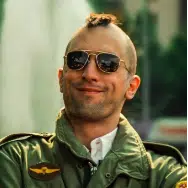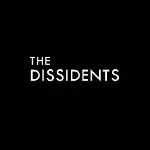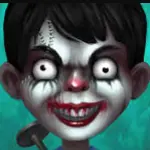"Ernest Hemingway once wrote: 'The world is a fine place and worth fighting for.' I agree with the second part."
Thirty years ago, Detective Somerset delivered the final line of Se7en, borrowing a quote from one of the most recognized and celebrated writers in contemporary history, alluding to the idea that evil never rests. It only waits. Evil is, by definition, a word, a concept—or a form, in any case—that encompasses all the worst qualities that can exist. Evil can manifest through the harmful actions of a human being, it can be a face that haunts us in the dead of night, or it can be the decisions we make. The latter is the central element of a series of events triggered by malice in the new thriller by Japanese master Kiyoshi Kurosawa—but more specifically, greed, one of the seven deadly sins that Somerset himself lists to his captain, hinting that what they had just witnessed was only the beginning of something far more disturbing.

Ryôsuke Yoshii, the protagonist of this twisted criminal/psychological journey, is someone seemingly touched by divine luck—though he doesn’t deserve it: His boss wants him as the manager at his factory despite Yoshii repeatedly stating his lack of work commitment. On top of that, he resells products online by scamming his buyers, has a sweet partner who doesn’t complain about his coldness, and holds a moral outlook on life that capriciously contradicts the rules set by the system. In short, Yoshii is an adult consumed by a system that subtly promoted individualism as the pinnacle of well-being, who eventually said "enough" and stopped taking orders—yet still seeks the acceptance of the few people around him.
A few months ago, I fell into a trap that could have easily been designed by someone like Yoshii. In a desperate attempt to make some extra money, I got caught in an online scam that promised earnings through cryptocurrency. I was desperate. I never saw the face of the person who stole from me, and the frustration of knowing I could do nothing about it has haunted me ever since. I felt terrified by what I imagined I might’ve done to that person had I seen their face—I didn’t recognize myself. I swore never to get involved in social media-promoted schemes again, and that marked the end of my relationship with that dark side of the internet.

In Japanese horror cinema, there’s a notion that the only real monster on this planet is the human being. A monster like the one who, just like what happened to me, scammed thousands and made a fortune off their desperation. Within that same cycle of chaos we constantly fall into, the Japanese have masterfully crafted something macabre and strange in their most iconic horror films—titles that feel like nightmares transferred directly from the darkest corners of consciousness to the big screen. Stories that have the power to unsettle and disturb us with something as simple as someone staring at us on a deserted beach, or the feeling of a shadow coming to life and slowly approaching. They are creators of a silent violence that slips between our thoughts and shakes us when we least expect it.
Between 1997 and 2001, Kurosawa directed two horror masterpieces—curiously different from each other, yet both aimed to deliver the same message: we must accept that we control nothing except our own decisions. Two cult classics in which the protagonists uncover extraordinary micro-universes where the only rules are those imposed by the “villains.”

Misunderstood in its time by half the world and praised by the other half almost two decades later, Cure (1997) tells the story of a detective played by the magnificent Kôji Yakusho (of Perfect Days fame), who investigates a series of murders committed by people who don’t remember killing their victims—a paranormal twist on the classic serial killer structure. Kurosawa created a cult film in which the camera, as in most of his work, follows us in terror—still, in shock—waiting for the dreadful to occur. Bracing for the worst...

This technically restrained yet meticulously orchestrated pattern of behavior would resurface four years later in Pulse (2001), a spiritual—if unofficial—prequel to the film analyzed several paragraphs below. Overwhelmed by the rapid rise of digital technology at the turn of the century, Kurosawa looked ahead to explore society’s fear of loneliness and depression in a world increasingly tied to digital, rather than physical, communication. The suicide (a deeply sensitive subject in Japan) of a young man in Tokyo serves as the starting point for exploring themes like oblivion, immortality, and the passage of time.
And if in Pulse the director “electrified” these entities to make us feel vulnerable to the unknown, in Cloud he sheds ghosts and supernatural elements entirely, placing the burden of monstrosity squarely on the human being. The arc of Yoshii, its protagonist, is simply brilliant. The film’s first ten seconds show this reseller laying out the rules of a game that will ultimately lead to his downfall. Yoshii sees online reselling as the perfect way out of his financial problems: under the alias “Ratel” (an Asian mammal known for its ferocity, aligning with Yoshii’s nature), he buys counterfeit goods wholesale from small stores and resells them at outrageous prices under the false promise of guaranteed quality.

What Yoshii doesn’t know—or doesn’t want to see, or understand—is the kind of people he’s dealing with. And therein lies, ironically, his character twist. “Never do to others what you don’t want done to you”, my elementary school teacher once told me, repeating it until it got stuck in my brain. Because somehow, the past always comes back. After quitting his factory job, his former boss goes mad, forms a group of misfit rebels seeking revenge—each of them somehow affected by Yoshii’s decisions—and together they embark on a path from which there’s no return.
Kurosawa may've lost part of what made his films genuinely terrifying, but ideas—ideas can be terrifying too. And this one undoubtedly includes two perfect ingredients that, if seasoned just right, can send chills down your spine at multiple moments: EVIL… AND THE HUMAN BEING.
Published on JULY 11, 2025, 01:50 AM | UTC-GMT -3
If you liked this piece of writing expression remember to give it a 👉 LIKE, put it in your FAVORITES, COMMENT 🗣️ , and FOLLOW ME for more articles like this📽











































View replies 2
View replies 1